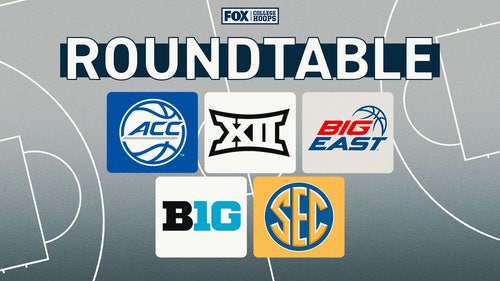AVP beach volleyball returns, with more events and new teams
The AVP is heading back to the beach with a bunch of new teams and a lot more tournaments for them to figure things out.
The domestic beach volleyball tour season opens this weekend in Austin, Texas, emerging from the pandemic with its longest and most lucrative schedule in more than a decade. The 16-tournament slate and total prize money of $2 million are both the most since 2009.
“I’m so thankful that we have so many tournaments, and I’m ready to rock and roll,” Tokyo Olympian Kelly Cheng said this week. “I’m blown away. It’s been hard financially the last few years. I’m so thankful to be able to compete."
After the usual post-Olympic partner-switching, all four of the U.S. teams that competed in the Tokyo Games have shuffled things up (though gold medalists April Ross and Alix Klineman are planning to reconnect when Klineman recovers from shoulder surgery).
Cheng actually has two new partners: The former Kelly Claes got married this year, and on the sand she is teamed up with Betsi Flint. Sarah Sponcil, who played with Cheng in Tokyo, is now with Terese Cannon.
Four-time Olympians Phil Dalhausser and Jake Gibb both retired after Tokyo, leaving partners Nick Lucena and Taylor Crabb to find new mates.
“Our U.S. men were pretty old, kind of toward the end of their careers. We knew that after this Olympics a lot of things were going to change,” said Crabb, who never got out of quarantine in Tokyo because of a positive COVID-19 test. “I think it’s great for the sport — it’s exciting for the sport — that there’s this new generation that’s battling it out for the top spot now.”
After qualifying for Tokyo with Gibb, Crabb is now with Taylor Sander. Tri Bourne, who subbed for Crabb as Gibb's Olympic partner, resumes his partnership with Trevor Crabb, Taylor's older brother.
They’re the top-seeded men’s team in Austin. The No. 1 seed on the women’s side is another legacy partnership, Canadians Sarah Pavan and Melissa Humana-Paredes, who won the 2019 World Championships but lost in the quarterfinals at the Tokyo Games.
“We’re one of the few teams that’s sticking together,” Bourne said. “There’s an advantage there, for sure. There will be some different looks and people trying to do some new things, but it definitely takes some time to get used to a new partner.”
Sara Hughes and Kelley Kolinske, another new American pairing, won the Itapema Challenge in Brazil last month in just their third tournament together.
“In our sport, it’s very natural to have a lot of partner switches, especially after an Olympic year,” Hughes said. “There’s always something getting mixed up. I’m really excited for my new partnership and what we have going so far. It’s a new opportunity for everyone to get better.”
Also finding a new partner: the AVP itself. The tour was bought by Bally Sports last year, a deal that could bring stability to the circuit that has gone through two bankruptcies and struggled to capitalize on the quadrennial Olympic bump.
It was dependably staging seven or eight tournaments a year under owner Donald Sun before the pandemic struck. It held three tournaments in each of the last two years, with a single-site bubble on three consecutive weekends in 2020.
“We haven’t had a full schedule in a long time,” Bourne said. “For a lot of us players, playing on the domestic tour is the most fun. The world tour is a completely different beast; it’s a great challenge in a different way. But having a full schedule and kicking things off here in Austin, it’s exciting.”








